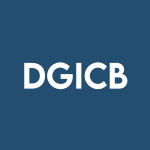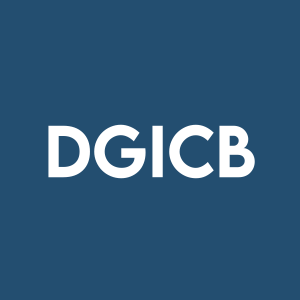Welcome to our dedicated page for Donegal Group SEC filings (Ticker: DGICB), a comprehensive resource for investors and traders seeking official regulatory documents including 10-K annual reports, 10-Q quarterly earnings, 8-K material events, and insider trading forms.
The Donegal Group Inc. (NASDAQ: DGICB) SEC filings page on Stock Titan provides structured access to the company’s regulatory disclosures as an insurance holding company in the property and casualty sector. Donegal Group Inc. files reports with the U.S. Securities and Exchange Commission covering its Class A and Class B common stock, both listed on the NASDAQ Global Select Market, and uses these filings to communicate financial and operational information to investors.
Among the most important documents for DGICB are its annual reports on Form 10-K and quarterly reports on Form 10-Q, which present segment information for commercial and personal lines, combined ratios, loss and expense ratios, investment portfolio composition and risk factors relevant to its property and casualty insurance operations. These filings detail how the company evaluates underwriting performance, including core losses, weather-related losses, large fire losses and development of reserves for prior accident years.
Donegal Group Inc. also files current reports on Form 8-K to furnish press releases that announce quarterly results, dividend declarations and other material events. For example, Form 8-K filings have incorporated press releases as exhibits when the company releases its financial results or announces other events related to its Class A and Class B common stock.
On Stock Titan, these filings are updated from the SEC’s EDGAR system and paired with AI-powered summaries that highlight key points from lengthy documents. Investors can quickly see how underwriting results, investment strategy and capital actions such as dividends are reflected in the company’s official disclosures, while still having access to the full text of each filing for detailed review. This page also helps users track filings that relate to DGICB’s registered securities and provides a historical record of the company’s regulatory reporting as an insurance holding company.
Donegal Group Inc. filed a Form 8-K to report an "Other Event" and to make a press release dated January 29, 2026 part of the public record. The company attached this press release as Exhibit 99.1, with the filing signed by Executive Vice President and Chief Financial Officer Jeffrey D. Miller.
Dimensional Fund Advisors LP filed an amended Schedule 13G reporting beneficial ownership of 1,729,921 shares of Donegal Group Inc common stock, representing 5.6% of the class as of the event date. Dimensional reports sole voting power over 1,699,508 shares and sole dispositive power over 1,729,921 shares.
The shares are owned by various funds and accounts advised or managed by Dimensional and its subsidiaries, and Dimensional disclaims beneficial ownership except for Section 13(d) reporting purposes. The filing states the holdings are maintained in the ordinary course of business and not for the purpose or effect of changing or influencing control of Donegal Group.
Donegal Mutual Insurance Co., a reporting person and director-related holder of Donegal Group Inc., reported a purchase of 19,212 shares of Class A common stock on 09/04/2025 at a price of $19.2244 per share. After the transaction the reporting person beneficially owned 13,559,629 Class A shares and 4,708,570 Class B shares. The Form 4 is signed by Jeffrey D. Miller on 09/08/2025.
Donegal Group Inc. reporting person Deas Noland Rone Jr. disclosed a sale of 1,148 shares of Class A common stock on 09/03/2025 at a price of $18.2313 per share. After the transaction the filing reports 0 shares beneficially owned directly and 2,521 shares beneficially owned indirectly through a 401(k) plan. The filer explains the transaction as a sale within the 401(k) plan with proceeds reallocated to other plan investments. The Form 4 was signed by Jeffrey D. Miller by power of attorney on 09/05/2025.
Jeffrey D. Miller, EVP & Chief Financial Officer, reported purchases of Donegal Group Inc. Class A common stock on 09/02/2025 and 09/03/2025. He acquired 19,440 shares at $18.2683 on 09/02/2025 and 20,000 shares at $18.3678 on 09/03/2025, bringing his direct holding of Class A shares to 13,540,417. The filing also shows direct beneficial ownership of 4,708,570 Class B shares. The Form 4 was signed by Mr. Miller on 09/04/2025.
Donegal Mutual Insurance Co reported purchases of Donegal Group Inc common stock in a Form 4. On 08/26/2025 it acquired 15,815 shares of Class A common stock at $17.4487 per share, increasing its direct holdings to 13,457,436 shares. On 08/27/2025 it acquired 15,509 Class A shares at $17.4947, increasing direct holdings to 13,472,945. The filing also shows 4,708,570 shares of Class B common stock reported as directly beneficially owned.
Donegal Group Inc. reporting person David Charles King completed matched option exercise and sale transactions in the issuer's Class A common stock on 08/27/2025. He exercised 4,500 options at an exercise price of $14.43, resulting in 4,500 shares acquired, and simultaneously sold 4,500 shares at $17.5071. After these transactions the reporting person beneficially owned 2,500 shares of Class A common stock.
Donegal Group Inc (DGICB) filed a Form 144 reporting the proposed sale of 4,500 shares of common stock via option exercise & sale on 08/27/2025. The sale was to be executed through Citigroup Global Markets, Inc. on the NASDAQ and the filing lists an aggregate market value of $78,750 for the shares. The filing reports 30,931,854 shares outstanding and indicates payment was made in cash. No securities were reported sold by the same person in the past three months.


